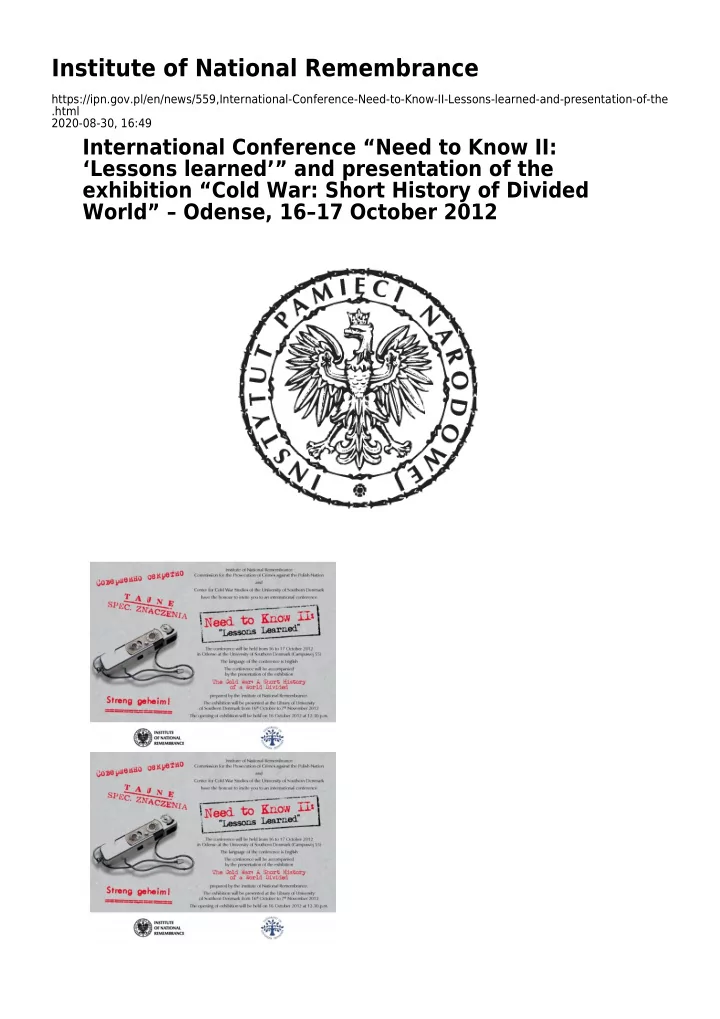

Institute of National Remembrance https://ipn.gov.pl/en/news/559,International-Conference-Need-to-Know-II-Lessons-learned-and-presentation-of-the .html 2020-08-30, 16:49 International Conference “Need to Know II: ‘Lessons learned’” and presentation of the exhibition “Cold War: Short History of Divided World” – Odense, 16–17 October 2012
Intelligence Studies are in their essence the history of intelligence. Learning from past is therefore the key to have the public, politicians, media, as well as practitioners understand intelligence better. What are the possibilities, the risks and the limits? Security, privacy, and surveillance are often discussed in the European countries. These problems relate directly to intelligence. In the past decade intelligence and counter intelligence service have been called for to provide the European citizens with security. However, this should be done in a way that also secures the citizens’ right to privacy. This is a matter of intelligence ethics. Yet, providing intelligence without bothering the society is also a question of efficiency and thus, ultimately a question of future security. Good intelligence practice must: • Target the actual threat, • Apply cost-effective operations, • Respect privacy, • Produce a non-biased analysis, • Be an effective interface to decision makers. The history and experience show that these factors are rarely taken into account in the intelligence process. Often bias distort both operations and analysis, the wrong threat is targeted, or operational work is done inefficiently. Thus, the original security aim – for instance fighting foreign agents or terrorist – is not met. The past half century has shown that the intelligence organizations are constantly presented with new tasks and challenges. They very rarely have the chance to look back and evaluate past events to draw historical lessons for the future. However, the question arises as to how the intelligence services today can combat terrorism without evaluating what actually happened on the terrorist scene in the 1970s and 1980s? The conference “Need to know II” offers a chance to look back at the Cold War and the 1990s and evaluate what can be learned from contemporary history. It will explore the research on that European intelligence since the end of the Second World War. The conference is organized in cooperation between the Institute of National Remembrance – Commission for the Prosecution of Crimes against the Polish Nation, and the Center for Cold War Studies of the University of Southern Denmark. The conference will be held in English. The conference will be accompanied by the presentation of the exhibition “ Cold War: Short History of Divided World” prepared by the Institute of National Remembrance.
The exhibition will be presented at the Library of University of Southern Denmark th October to the 7 th November 2012 (Campusvej 55) from 16 The event will be take place in Odense at the University of Southern Denmark (Campusvej 55). It is open to the public and free of charge. For additional information please contact: anna.piekarska@ipn.gov.pl The invitation and detailed program as attached.
Recommend
More recommend